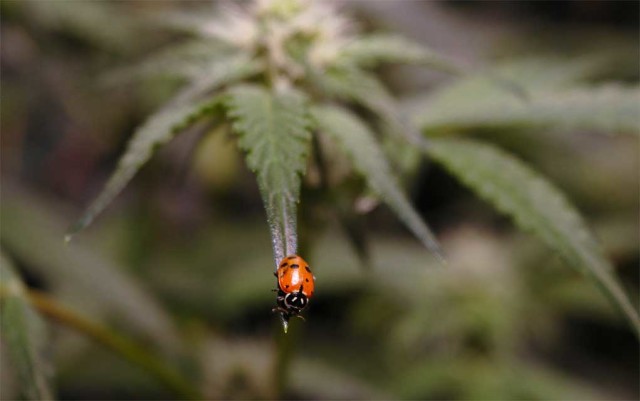
Skywalker OG. Sour Diesel. LA Confidential. With dozens of different strains available to choose from, each emitting a different aroma and promising a different high, it is hard to remember that it is all just one thing — cannabis. With one ingredient served up in dozens of different ways, it can paralyze a consumer, but for a grower, it’s an innovative paradise.
“It almost feels like it’s never been done before,” says Stephen Lipton, general cultivation manager of Boulder dispensary The Farm. “I guess because it really hasn’t. Before it was a black market thing, and now that it isn’t there is a high level of experimentation and ingenuity going on that you just can’t deny anymore.”
Once the industry came above ground it entered a sort of renaissance, where growers could begin refining the genetics of their clones to create new, more precise strains and develop more sophisticated techniques to grow and cure the plant.
For the growers, developing this market space comes with a deep sense of responsibility, as they find themselves walking the line between geneticist, pharmacist and product developer.
When Amendment 64 passed, The Farm expected clearer definition between medical and recreational use and a little more guidance to boot, but there isn’t. It is now up to individual growers to deliver reliable products, accurately described, for both prescriptive and recreational purposes.
For Lipton that responsibility translates to craft cannabis, which he defines as “the artful attunement of cultivators to be able to adjust to the needs of each plant to bring out its full potential.”
Packed into that dense definition is Lipton’s 20-plus years of experience in small, organic farming and horticulture. In those years he learned that growing is a humble process of giving plants exactly what they need and then getting out of the way to let them do their thing.
All of that starts with the seed. Once farmers design and test seeds, they select the most popular and effective strains and introduce them into their seasonal cycles of production. Normally, a company would try to protect this sort of intellectual property through patenting, but with marijuana still listed as a federally illegal drug, that process is not available.
Maybe that’s a good thing, Lipton says, considering what is happening in traditional agriculture as seeds are increasingly patented.
“I used to grow this flower called Purple Wave Petunia, which is the best purple petunia there is,” Lipton says. “If you want to grow it, you have to pay that company, which owns the rights. You can grow it, but you can’t clone it or seed it. You buy it at the store and that is it, you have to come back and pay for it every year. Whereas plant breeding in the past, and in the history of man, was in collecting seeds. Year after year you replant the seeds from the previous crop.”
Unable to patent and unwilling to play a part in controlling the destiny of seeds, The Farm decided to sell them direct to customer, a bold business move with the potential to undermine their own market by enabling customers to replicate their product. But they don’t seem worried.
“It is a seed and it goes from a seed to a plant to a flower,” Lipton says. “Each individual person who gets a seed in the world could do a different thing with it, it is like the expression of its potential. We are confident that, by using our craft cannabis principles, we are able to express the seed to its fullest potential. That is an artform, getting to the point where we are able to express it in a meaningful way.”
But what’s so special about their process that they can sell seeds while others hoard them? Add water and nutrients, sunlight and dirt, let some time pass and you have high-quality craft cannabis, right? Not quite so easy.
Lipton has learned the hard way that plants have many formidable foes — i.e., bugs — that complicate that simple equation.
There are two options when it comes to pests: spray them with pesticides or manage them. In choosing the latter, The Farm isn’t just embracing a technique, it is further establishing their philosophy of craft cannabis. Their strategy is called Integrated Pest Management (IPM), a holistic approach to taking care of plants.
To accommodate IPM, The Farm abandoned the large warehouse model, subdividing the space into much smaller rooms that are kept immaculately clean and are temperature- and humidity-controlled. A dedicated team of growers attends to each small batch of plants, from clone to full-grown, pruning excess leaves, monitoring nutrient levels and the presence of bad bugs.
In one of the small rooms, there are a bunch of ladybugs flying around. According to Lipton, the team introduces them and other insects into the room to create a balanced ecosystem in which good bugs eat up the more harmful ones.
IPM recognizes that pests may never be fully eradicated. Instead, the practice focuses on minimizing the impact of pests rather than spraying harmful chemicals that would be harmful for the ecosystem or the consumer.
“It takes more work to do it like this,” Lipton says, “but that is what separates us and keeps us on the craft level. Because we give each plant what it needs. It is not about avoiding the problem, it is addressing the problem. Instead of being reactionary it is about being proactive.”














